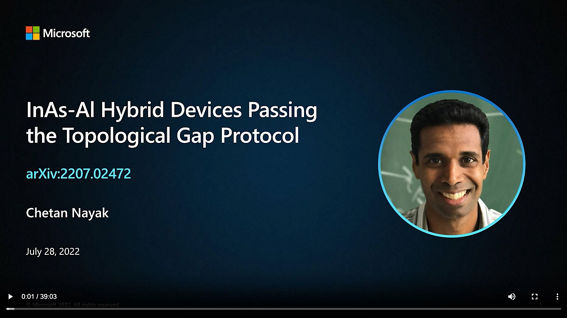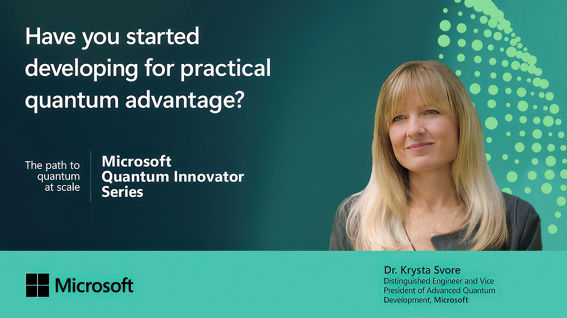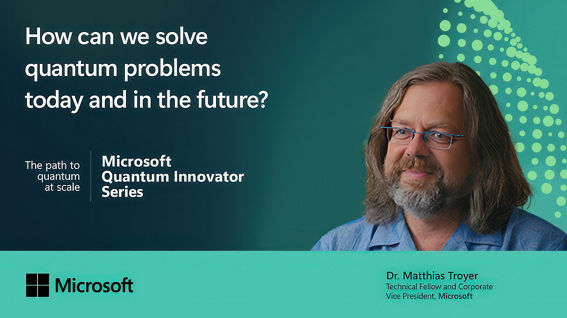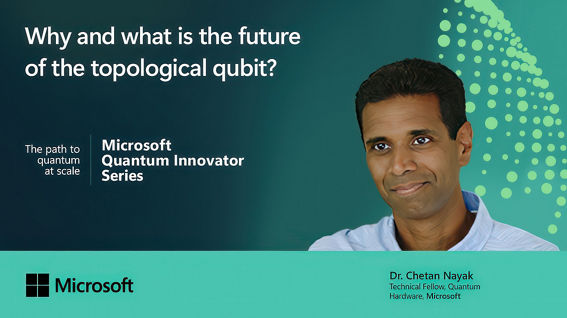In this video, Dr. Sankar Das Sarma, a Distinguished University Professor of Physics at University of Maryland joins Chetan Nayak, Distinguished Engineer of Quantum at Microsoft to discuss Microsoft’s unique approach to building a fully scalable quantum machine.
In this video, Dr. Sankar Das Sarma, a Distinguished University Professor of Physics at University of Maryland joins Chetan Nayak, Distinguished Engineer of Quantum at Microsoft to discuss Microsoft’s unique approach to building a fully scalable quantum machine.
Today’s quantum computers are based on a variety of qubit types, but none so far have been able to scale to enough qubits to fully realize the promise of quantum. Microsoft is taking a more challenging, but ultimately more promising approach to scaled quantum computing with topological qubits that are theorized to be inherently more stable than qubits produced with existing methods without sacrificing size or speed. While engineering challenges remain, Microsoft’s recent breakthroughs prove out a fundamental building block for our approach to a scaled quantum computer.
About the speaker
Chetan Nayak | Technical Fellow and VP of Quantum Hardware and Systems Engineering, Microsoft
Dr. Nayak is a pioneer of the study of quantum matter, including topological and non-equilibrium phases. He holds a bachelor’s degree from Harvard and a PhD in physics from Princeton. He was an assistant, associate, and full professor at UCLA, a visiting professor at Nihon University in Tokyo, and is a professor of physics at UCSB. Chetan was a trustee of the Aspen Center for Physics and an editor of Annals of Physics. He is a Fellow of the American Physical Society and a recipient of an Alfred P. Sloan Foundation Fellowship and a National Science Foundation CAREER award. He has published more than 150 refereed articles with more than 20,000 citations and has been granted more than 20 patents. Chetan Nayak | Technical Fellow and VP of Quantum Hardware and Systems Engineering, Microsoft.





